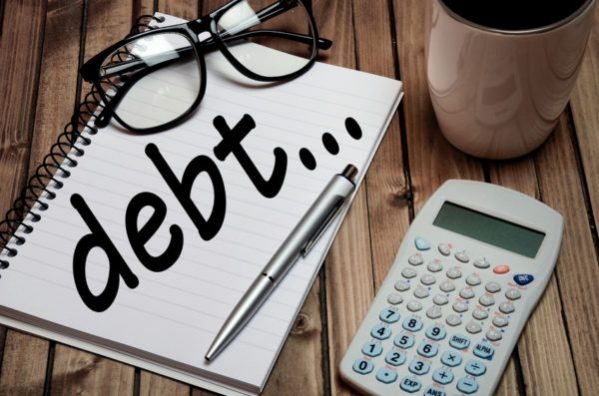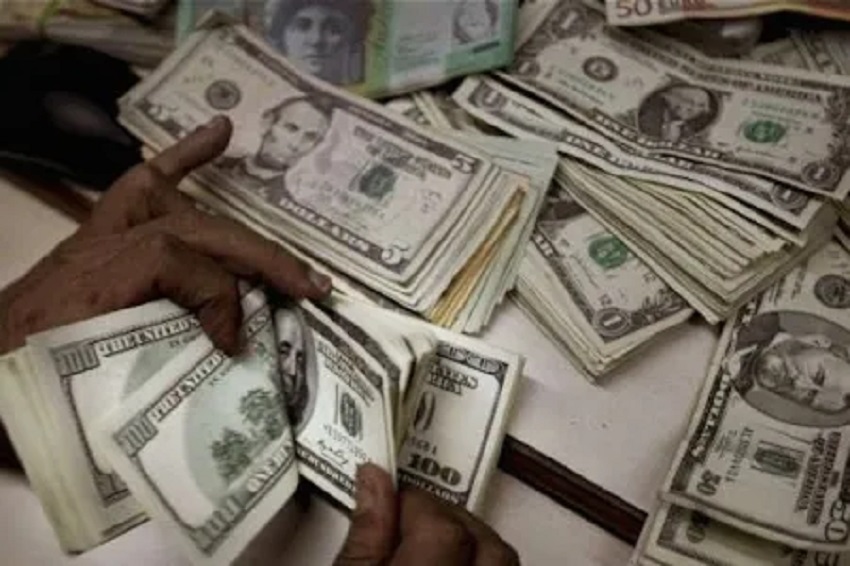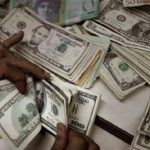Economy
FG Must Reduce Debt Burden Ratio Below 20%—FSDH


By Modupe Gbadeyanka
Federal Government has been advised to development ways to reduce its debt burden ratio below 20 percent, at least in the main time.
FSDH Research, in its latest report titled ‘Nigerian Public Debt: A Comparative Analysis,’ said the fact that interest payment is such a significant part of government revenue limits the revenue left for the government to undertake other developmental projects in the short-term.
“We expect this position to improve as government revenue increases as a result of the ongoing economic measures in the country to raise the level of revenue.
“We are of the opinion that government should develop strategies to reduce the ratio of interest payment to revenue below 20 percent in the medium-term,” the firm suggested.
It said further that although the debt stock in Nigeria has increased substantially, it believes this is sustainable in the short-to-medium term given the economic growth potential of the country.
In the short-to-medium-term, government will need to borrow both from external and domestic sources in order to augment the low revenue facing the country as a result of the current economic challenges.
The FGN needs to improve critical infrastructure in the country to increase the competitiveness of the economy to attract investments. This requires more money than current government revenue. The FGN is also working to diversify its revenue base through the issuance of the FGN Savings Bond, Diaspora Bond, and Sukuk.
The efforts of the FGN coupled with the improvement in the macroeconomic environment should help to lower interest rate, it noted.
“We will also continue to encourage the government to partner with the private sector in the provision of critical infrastructure. In addition, government should ensure that any debt contracted is judiciously utilised on projects that promote economic growth and development,” FSDH Research said.
The firm said it observed that the public debt (total of both external and domestic debt) in Nigeria has been increasing over the last five years and the issue of the sustainability of the debt level has generated a lot of debate.
A comparative analysis of the debt-to-Gross Domestic Product (GDP) of a number of countries shows that the ratio of debt-to-GDP is very low in Nigeria.
“Amongst the countries we monitored, Japan recorded the highest debt-to-GDP of 250.40%. This was followed by the United States of America (U.S) with 104.17%; France 96%, United Kingdom (UK) 89.30%; and Germany 68.30%. India and China have a debt-to-GDP of 69.50% and 42.90% respectively. South Africa and Venezuela have debt-to-GDP of 50.10% and 49.80% respectively,” it said.
Available data from the Debt Management Office (DMO) shows that Nigeria’s total debt stock as at March 2017 stood at N19.16trn, representing an increase of 10.37% from the December 2016 figure of N17.36trn.
This also represents growth of 153.63% from N7.55trn in 2012. A breakdown of the debt stock shows that external debt accounted for 22.08% (N4.23trn), while domestic debt stock accounted for 77.92% (N14.93trn).
The increase in the total debt is attributable to the following factors: the need to fund infrastructure and to supplement the declining government revenue. Many analysts have argued that the increase in government’s appetite for borrowing has crowded out the private sector.
The proportion of domestic debt to total public debt dropped consistently between 2013 and Q1
2017.
On the average, the proportion of domestic debt to total debt was 85% between 2012 and 2015; but reduced to 78% between 2016 and Q1 2017.
The increase in external borrowing and the impact of exchange rate depreciation were the main reasons for the reduction in the proportion of the domestic debt stock. The FGN has set what it believes to be an optimal domestic debt to external debt ratio at 60:40. At the current (external to domestic debt) level of 78:22, it appears that there is still room to increase the external debt component of the total debt stock.
The debt-to-GDP in Nigeria as at December 2016 stood at 17.11%. This is far below the critical limit of 40% the FGN has set for the Nigerian economy.
This means that, by this metric alone, there is substantial room for the government to increase its borrowing.
However, the debt-to-GDP ratio is not the only issue. The major stress point is the rising level of interest payment relative to government revenue. The ratio of interest payment-to-government-revenue increased from 24.48% in 2012 to an estimated 35.32% in 2016.
The FGN expects that this ratio will moderate slightly to 33.67% in 2017.
Economy
Oil Prices Surge as Strait of Hormuz Traffic Freezes Amid Iran-Israel Row

By Adedapo Adesanya
Oil prices surged 8 per cent on Monday as Israel and US strikes on Iran and retaliation by the Islamic Republic forced shutdowns of oil and gas facilities across the Middle East and disrupted shipping in the crucial Strait of Hormuz.
Brent crude rose 8.7 per cent or $6.36 to trade at $79.23 per barrel, while the US West Texas Intermediate (WTI) crude expanded by $7.8 per cent or 5.27 per cent to $72.29 per barrel.
Oil’s surge on the restart of trading after the weekend, however, was smaller than expected. On Sunday, some analysts had predicted oil would open above $90 a barrel and closer to $100.
The widening Iranian conflict is disrupting oil flows to several Asian countries as vessels are bottled up within the Middle East Gulf, and crude and transport costs are rising.
US President Donald Trump signalled the US-Israel military assault could continue for weeks, which could mean a prolonged disruption of traffic through the Strait of Hormuz, through which around 20 per cent of global oil output and a similar share of liquefied natural gas transits via ships from Middle East producers.
On Monday, Saudi Arabia shut its biggest domestic oil refinery after a drone strike. Qatar halted production of liquefied natural gas, and state-owned QatarEnergy was set to declare force majeure on LNG shipments.
The widening Iran conflict also left 150 ships stranded at anchor around the Strait of Hormuz after a seafarer was killed and at least three tankers were damaged.
The disruptions highlight the risks to Asia, the world’s biggest oil-consuming region, which sources 60 per cent of its oil from Middle Eastern producers. For instance, an extended disruption of the Strait would push oil prices higher and could cause supply shortages to China and India, the world’s biggest and third-biggest oil importers, forcing countries to tap stockpiles and reducing refinery operations.
In the view of the International Energy Agency (IEA) and other analysts, the oil market is well supplied with additions to supply from producers such as the United States, Guyana and the Organisation of the Petroleum Exporting Countries and its allies (OPEC+) expected to outpace global demand this year.
Eight members of OPEC+ agreed on Sunday to raise oil output by 206,000 barrels per day in April.
Economy
Dangote Taps Vetiva, Others for $20bn Refinery NGX Listing

By Adedapo Adesanya
The Dangote Group has appointed Stanbic IBTC Capital, Vetiva Capital Management, and First Capital as lead issuing houses and financial advisers for its planned listing of its $20 billion Dangote Petroleum Refinery and Petrochemicals on the Nigerian Exchange (NGX) Limited in the coming months.
According to reports, which cited sources familiar with the matter, the listing could mark Africa’s largest equity offering, with plans to float 5-10 per cent of the refinery at a debut valuation of $40-50 billion. This could potentially boost the Nigerian main bourse’s market cap past N200 trillion from the current almost N125 trillion.
Stanbic IBTC, part of Standard Bank, will handle international book-building and foreign investor outreach, while Vetiva, with prior Dangote listing experience, focuses on local retail and regulations.
Late last month, the chairman of Dangote Group, Mr Aliko Dangote, said that within the next five months, Nigerians should be able to purchase shares of the refining subsidiary of his conglomerate.
The Lagos-based refinery is the largest single-train refinery in the world with 650,000 barrels per day refining capacity. There are efforts to boost the capacity to 1.4 million barrels per day soon.
“Nigerians too will have an opportunity in the next, maybe a maximum of four to five months. There will actually be an opportunity to buy the shares,” he said during a tour of the facility by the chief executive of the Nigerian National Petroleum Company (NNPC) Limited, Mr Bayo Ojulari, alongside members of the company’s executive management.
The facility, which is now operating at full capacity, a world-record milestone for a single-train refinery, comes after the completion of an intensive performance testing on the refinery’s Crude Distillation Unit and Motor Spirit production block.
The refinery is now positioned to supply up to 75 million litres of petrol daily to the domestic market, an increase from the 45 million – 50 million litres delivered during the recent festive period.
The development can reshape Nigeria’s energy landscape and reduce the country’s longstanding dependence on imported refined products while positioning the country as a net exporter to West African markets.
Yet, the refinery faces difficulty securing adequate crude oil supplies from Nigerian producers, forcing it to import feedstock from the US, Brazil, Angola, and other countries.
Economy
Nigeria’s Net FX Reserves Climb 50% to $34.8bn in 2025

By Adedapo Adesanya
Nigeria’s net foreign exchange reserves rose 50.6 per cent to $34.80 billion at the end of 2025, marking a sharp improvement in the country’s external liquidity position.
Net foreign exchange reserves refer to a country’s readily available external reserve assets after deducting short-term foreign liabilities. This is unlike gross foreign exchange reserves, which are the full stock of external reserve assets held by a country’s central bank, without subtracting any liabilities or commitments.
In a statement issued on Monday by the Central Bank of Nigeria (CBN), citing the Governor, Mr Yemi Cardoso, it was disclosed that net reserves increased from $23.11 billion at the end of 2024 to $34.80 billion at the close of 2025, representing a $11.69 billion rise within one year.
The figure also reflects a significant recovery from $3.99 billion at the end of 2023, signalling what the apex bank described as a marked improvement in reserve quality over a two-year period.
“The Governor of the Central Bank of Nigeria (CBN), Mr Olayemi Cardoso, has stated that Nigeria’s gross and net foreign reserves showed significant improvement at the end of 2025, reflecting stronger external sector fundamentals and sustained policy reforms.
“Following his disclosure at the post-Monetary Policy Committee (MPC) press briefing on Tuesday, February 24, 2026, where he said the country’s gross external reserves stood at $50.45 billion as of February 16, 2026, Mr. Cardoso, at the weekend, said the net foreign exchange reserves, as at the end of December 2025, rose to $34.80 billion,” the statement said.
Notably, the 2025 net reserve position exceeded Nigeria’s total gross external reserves recorded at the end of 2023, which stood at $33.22 billion.
This means that the country’s liquid and unencumbered foreign exchange buffers as of end-2025 were stronger than the entire headline gross reserve level just two years earlier.
According to Mr Cardoso, gross external reserves rose from $40.19 billion at end-2024 to $45.71 billion at end-2025, reflecting a $5.52 billion increase. As of February 16, 2026, gross reserves had climbed further to $50.45 billion.
He said the improvement in both gross and net reserves reflects stronger external sector fundamentals and sustained policy reforms.
The apex bank governor attributed the surge to improved transparency and credibility in foreign exchange management, which he said boosted investor confidence and attracted stronger FX inflows.
He added that enhanced reserve management practices were aimed at preserving capital, ensuring liquidity and supporting long-term sustainability.
According to him, the expansion highlights Nigeria’s improved capacity to meet external obligations, support exchange rate stability and reinforce overall macroeconomic resilience.
He described the end-2025 reserve position as validation of the Bank’s ongoing reforms and external sector adjustments, reaffirming the CBN’s commitment to maintaining adequate buffers and orderly foreign exchange market operations.
-

 Feature/OPED6 years ago
Feature/OPED6 years agoDavos was Different this year
-
Travel/Tourism10 years ago
Lagos Seals Western Lodge Hotel In Ikorodu
-

 Showbiz3 years ago
Showbiz3 years agoEstranged Lover Releases Videos of Empress Njamah Bathing
-

 Banking8 years ago
Banking8 years agoSort Codes of GTBank Branches in Nigeria
-

 Economy3 years ago
Economy3 years agoSubsidy Removal: CNG at N130 Per Litre Cheaper Than Petrol—IPMAN
-

 Banking3 years ago
Banking3 years agoSort Codes of UBA Branches in Nigeria
-

 Banking3 years ago
Banking3 years agoFirst Bank Announces Planned Downtime
-

 Sports3 years ago
Sports3 years agoHighest Paid Nigerian Footballer – How Much Do Nigerian Footballers Earn












